Australia was, and is still known as the United States’ “deputy sheriff” in the Asia-Pacific region. That perception was reinforced during John Howard administration, when the Australian prime minister became a key supporter of the 2003 Iraq War, a war started by President George W Bush under the pretext that Saddam Hussein possessed weapons of mass destruction.
Of course, no weapons of mass destruction were found in Iraq by the invading forces. Years after Mr Howard left the office, he still insisted his decision to send Australian troops to the Iraq War was not only “justified”, but was not based on a lie. Andrew Wilkie, an independent Australian MP, said the Iraq invasion was responsible for the Bali attack of 2005, which killed many Australians.
Fast forward to 2020, the world is under Coronavirus attack. Unlike conventional warfare, the military superpower U.S. is powerless against the invincible virus. To deflect his own incompetence at home, President Donald Trump instead accused China’s incompetence in controlling the Covid-19 from spreading, despite tons of evidence that the U.S. president sat on his hands for months.
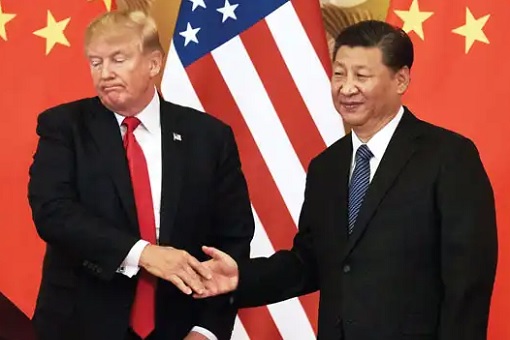
In fact, Donald Trump has just blamed China’s incompetence for “mass worldwide killing”. But in April 14, epidemiologists Britta L. Jewell and Nicholas P. Jewell wrote that had Trump decisively implemented social distancing a week earlier, the U.S. could have reduced deaths by an estimated 60% nationwide – and as much as 90% if implemented 2 weeks earlier, on March 2.
Trump administration, sadly, started issuing social-distancing guidelines only on March 16, more than 2 weeks after the first Covid-19 related death. And according to a latest research from Columbia University, around 54,000 American deaths could have been avoided if the U.S. government issued a lockdown 2 weeks earlier on March 1 (Trump only declared a national emergency on March 13).
As Trump continues to fan US-China tensions by accusing Beijing of “a disinformation and propaganda attack” that “comes from the top”, a dangerous accusation that pointed at President Xi Jinping, deputy sheriff Australia has similarly invited China’s displeasure when it aggressively campaigns for an international inquiry into the Coronavirus outbreak.
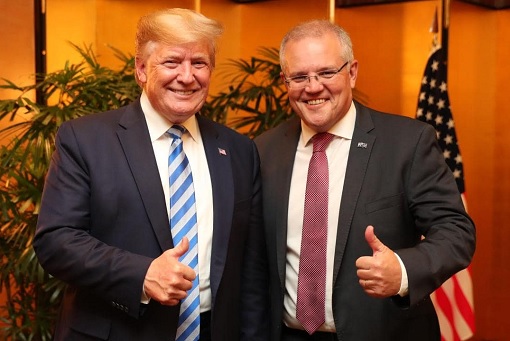
China has mocked Australia of parroting the U.S. in its call for an inquiry to determine the origins of Covid-19, despite Australian Prime Minister Scott Morrison’s own admission that he had no evidence to suggest the disease originated in a laboratory in the Chinese city of Wuhan. Trump has said he was confident the Coronavirus may have originated in the Chinese virology lab.
While Morrison administration argues the world needs to understand exactly what happened to prevent a repeat of an outbreak, Beijing is unconvinced, believing that the inquiry call is part of US-led propaganda against China. The relations between China and Australia have taken a hit since the deputy sheriff started its campaign in mid-April.
Not everyone likes the idea – some Australian business leaders have warned of economic damage from a retaliation or boycott by the nation’s biggest trading partner. Corporate leaders have advised against any Covid-19 inquiry until after U.S. presidential elections in November to avoid political blame-game. But the Australian government thought they could handle China.
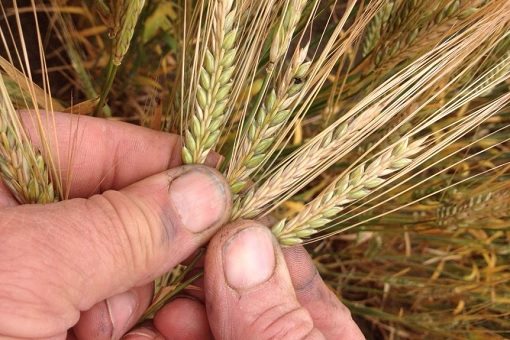
Three days ago, China slapped an 80.5% tariff on all Australian barley grain, sparking speculation of a new trade war between both nations. Later, Beijing moved on to escalate the trade tensions by imposing new customs inspection procedures on Australian iron ore imports. Last week, Beijing suspended imports from four major Australian beef suppliers for 30 days, allegedly over labelling issues.
True, as far back as November 2018, before the Coronavirus outbreak, China announced an investigation into whether Australia was unfairly subsidising its local barley producers or whether they had engaged in unfair “dumping” of its surplus product. But this time, Beijing did not bother to use technical jargons like unfair subsidising or dumping to target Australia.
Two days ago (May 20), Global Times, a mouthpiece for Beijing, warned that China has the power to hurt the Australian economy, but won’t fire the first shot in a trade war. Obviously, the Chinese welcomes the Aussie to retaliate against the deliberate provocations against Australian barley, beef, iron ore and whatnot. The only reason China said it won’t fire the first shot is not to be seen as a big bully.
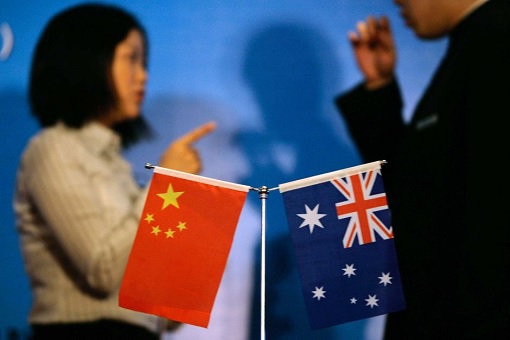
Interestingly, Australia’s Agriculture Minister David Littleproud said that his country would not seek a tit-for-tat retaliation against China. The Australian government, in its attempt to downplay the prospect of a trade war with China, has claimed the barley tariff as an “administrative issue” – something that has been brewing for 18 months.
In truth, Canberra cannot afford to add fuel to the fire after Beijing said it had prepared a “hit list” of Australian products – wine, seafood, oats, fruit and dairy exports that could face stricter quality checks, delayed customs clearances, anti-dumping probes or consumer boycotts. Beijing has also threatened to boycott tourism and universities. Understandably, Australia can’t stomach a trade war.
China is Australia’s biggest trading partner – about one-third of “the land Down Under” total exports go to the Chinese, contributing A$135 billion annually and providing thousands of jobs. Clearly the deputy sheriff has overlooked the fact that it depends heavily on China, hence its inability to retaliate the moment China warns of the possibility of a trade war.
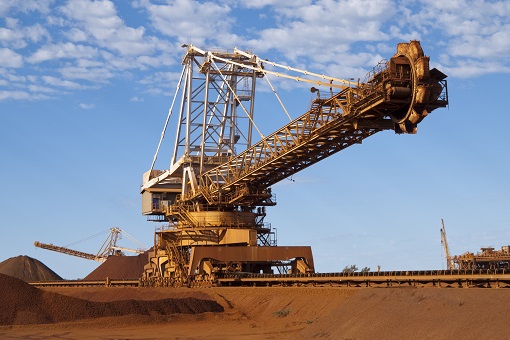
The Aussie’s export of iron ore to China in 2018-19 was worth a jaw-dropping A$63 billion, not to mention A$17 billion of natural gas and A$14 billion of coal. Australia’s iron ore export constituted 66% of China’s total import. To teach Australia a lesson, Beijing could easily swing to Brazil (or even the U.S.), who is currently exporting 21% of iron ore needed by the Chinese industry.
With the so-called new customs inspection procedures in place, it is believed that Chinese officials would make life difficult for the Aussie, demanding unnecessary extra “quality” checks on Australian iron ore, delaying the commodity from passing through while at the same time allowing imports from other competing countries to “sail through”.
In terms of agricultural products, Australia earned A$9.5 billion alone in beef export, followed by non-beef meat (A$5.2 billion), wool (A$3.8 billion) and wheat (A$3.7 billion). As the world’s biggest consumer of beer, China is the largest export market for Australian barley. The Chinese imported over 2.5 million tonnes of Australian barley in 2018-19 – more than half of Australian total barley exports.
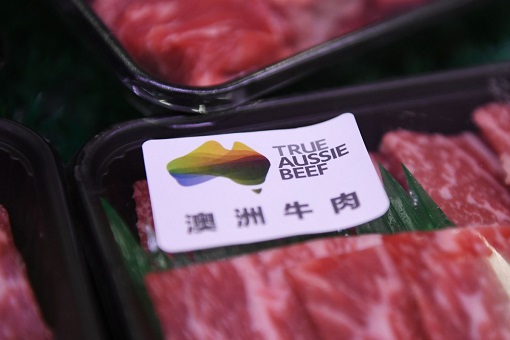
The latest tariff could cost Australian barley grain industry a whopping A$500 million per annum. And the new tariffs are to be imposed for a period of 5 years, starting from 19 May 2020. That’s A$2.5 billion over the next 5 years. To make matters worse, some Australian farmers are addicted to China because it pays high prices for specially-bred types of barley especially for the Chinese market.
Of course, Canberra can always complain to the World Trade Organization (WTO). In fact, it’s likely Australia would win its case against China. But an official complaint can drag on for years. A prolonged investigation, possibly over the 5 years during the tariffs is in effect, will create enough damage to Australian farmers by the time Beijing is to be found guilty.
Still, Beijing can always argue that it has to stop buying from Australia because China pledged to buy an extra US$200 billion of American agricultural products and other goods and services over 2 years as part of Trump’s “Phase One” trade deal. So, deputy sheriff Australian should instead blame the U.S. for taking away its market share.
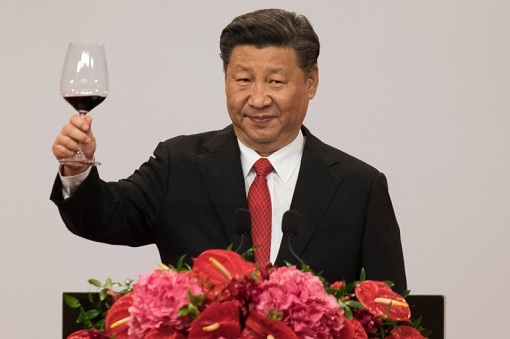
Besides, China can always retaliate by lodging counter-complaints over Australian anti-dumping duties on Chinese steel. For now, the Australian government will most probably keep trying to persuade the Chinese government to cancel the tariffs. But Beijing has been playing hard to get, refusing to schedule “ministerial level discussions” to resolve the disagreements. - financetwitter



No comments:
Post a Comment
Note: Only a member of this blog may post a comment.